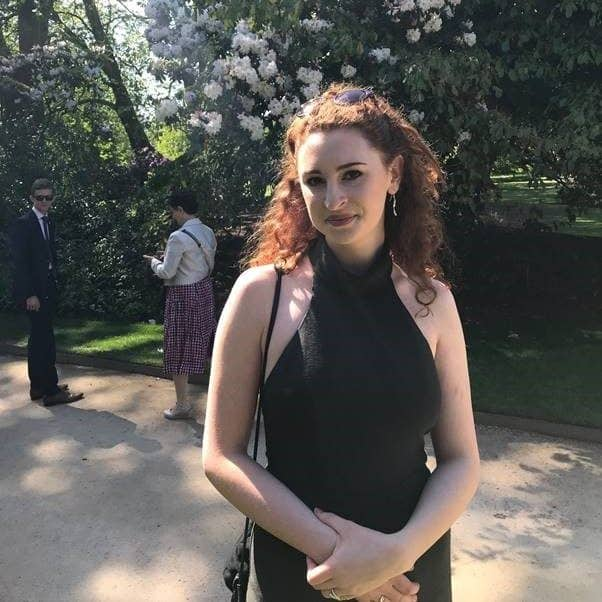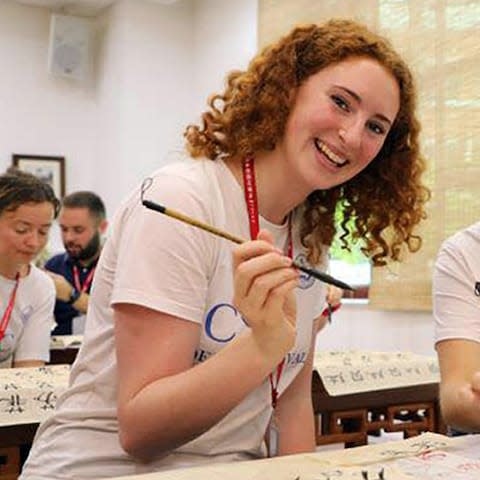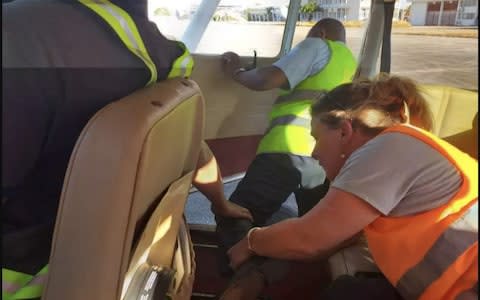Hundreds in desperate search for Cambridge student's body after death leap from plane

The search for the body of Cambridge student who jumped to her death from a light plane was continuing on Friday amid growing fears she may never be found.
Alana Cutland, 19, managed to open the door of the light plane and leap 3,700ft to her death after fighting off a friend who was travelling with her back to Britain from Madagascar.
Dozens of police and soldiers have joined around 200 local civilians in searching for the student’s body along the coast and inland savanna and dry deciduous forests of the region.
Residents of Anjajavy, from where Miss Cutland’s plane took off last Thursday, are working with military personnel from the Arivonimamo Tactical Air Defense Base to find her remains.
But police yesterday warned they may never find the research student due to the remoteness of the location and the wildlife in the area.
Police are examining the theory Miss Cutland suffered a psychotic episode, following the discovery of doxycycline and Larium in her luggage.
However, without a body it will remain impossible to confirm whether Miss Cutland had an adverse reaction to the anti-malaria medicine which may have caused her to suffer a psychotic episode before she jumped from the plane.
Local police chief Sinola Nomenjahary told The Telegraph: “The next step is an autopsy but we cannot do this until we have found the body. The investigation continues and is focused on finding the body.
Mr Nomenjahary said Miss Cutland fell into an area inhabited by "carnivorous fossa felines".
The fossa, which looks like a cross between a cat, a dog and a mongoose, is the largest carnivorous mammal on the island, reaching up to six feet in length.

Following Miss Cutland’s death fellow researchers have raised their concerns about vulnerable young students struggling to cope with mental health issues while far from home.
Dani Rabaiotti, who is studying the impact of climate change on African wild dogs at London Zoo’s Institute of Zoology and University College London, said: “The tragic case of Alana Cutland should have all of us who participate in fieldwork thinking about whether our field sites are equipped to evacuate us safely in the case of mental health issues.
“People commonly take Larium in the tropics. The side effects include psychosis and delusions. “On top of this people commonly engage in field work at an age where people are most likely to see the onset of mental health issues.”
Police have said Miss Cutland, who was doing voluntary work locally while studying endangered crabs on the Indian Ocean seabed, was suffering from anxiety and had suffered a number of paranoid episodes.
Cambridge University said Miss Cutland had organised and financed the trip herself and was not under the oversight of academic staff, although it said it offered safety advice for students travelling overseas on similar ventures.
The Cessna pilot who was flying Miss Cutland on the first leg of her journey home when she forced open the plane door has told how he struggled to save her.
Mahefa Tahina Rantoanina, 33, said Miss Cutland remained “completely silent” during the struggle, before managing to slip from his grasp and plunge to earth.
Mr Rantoanina said he and the family friend, Ruth Johnson, 51, had struggled to hold on to the teenager, but could not prevent her jumping out.
He told The Sun: “I had just taken off and I was still climbing when all of a sudden there was a rush of wind and Ruth started screaming. I turned round and saw Alana hanging out of my plane.
“I immediately levelled the aircraft to try and keep us on course, then I reached over and held the door. I was trying to pull it shut while Ruth was holding on to Alana’s leg.
“I was trying to fly and stop her from falling at the same time. I was absolutely terrified, we all were. Ruth and I were shouting at her to come back inside the plane. But for the whole time Alana did not say a word, she just struggled to get away from us.”

Air accident investigators said that when the plane reached around 3,700ft Miss Cutland reached forward, pushed the seat in front and turned the door handle - just as she had been shown in a pre-take off demonstration.
Gervais Damasy, the director of Madagascar's air accident investigation bureau, said that Miss Cutland remained hanging half out of the aircraft for up to two minutes, buffeted by the wind, before she was finally wrenched from Ms Johnson's grasp and fell out.
He said of Ms Johnson, who met Miss Cutland during her trip and agreed to fly back home with her: "She was very brave. She did her best for her and the pilot did the same. In this situation the plane could have crashed."
Miss Cutland’s parents, Alison, an executive at Cranfield University School of Management, and Neil, an energy consultant, had become so concerned about her state of mind in the days before her death that they asked Ms Johnson to travel to the island to accompany her home.
The teenager, who was in her second year at the University of Cambridge studying natural sciences, had been due to spend six weeks on the trip, but cut it short after eight days after speaking to them.
Mr and Mrs Cutland are understood to have rented the light plane intended to take their daughter and Ms Johnson from a lodge on the north of the island to Madagascar's Ivato Antananarivo international airport, from where they would have flown to Paris and on to London.

 Yahoo News
Yahoo News 
